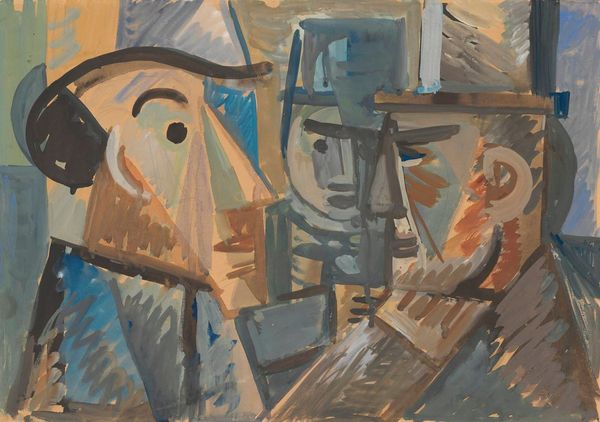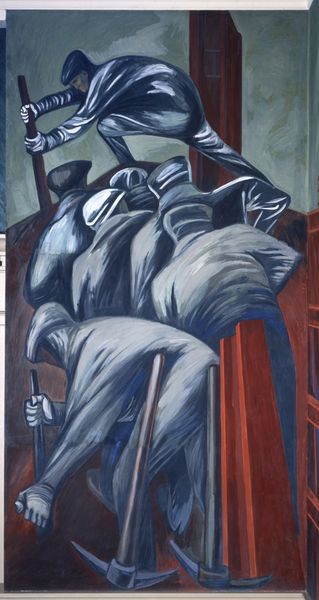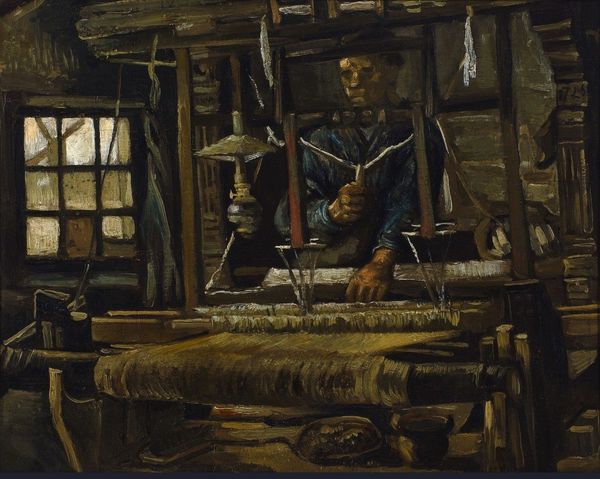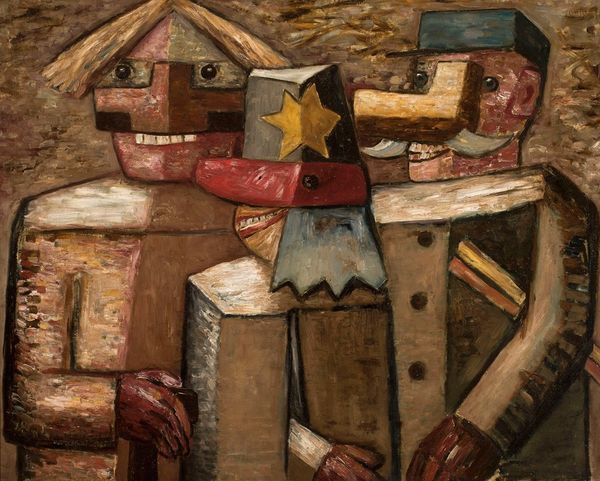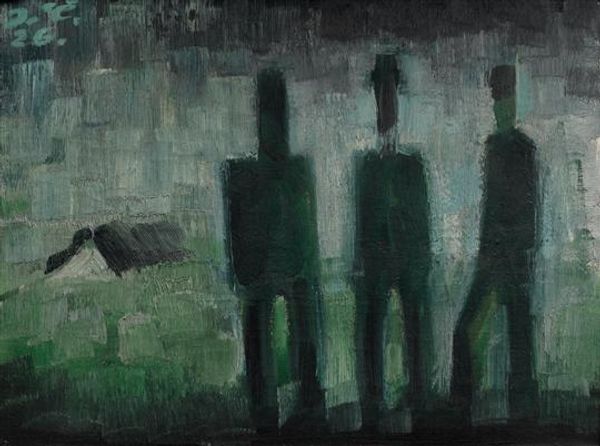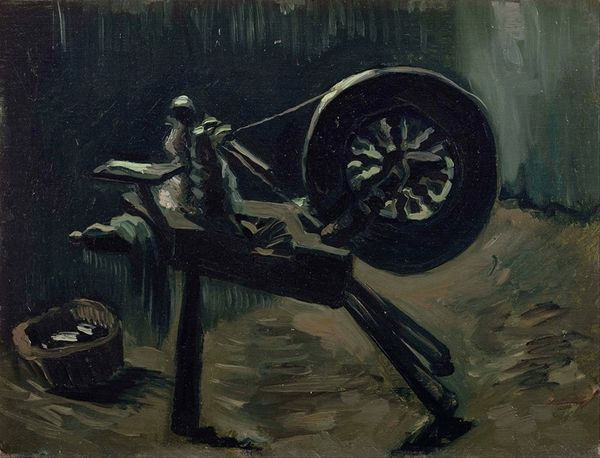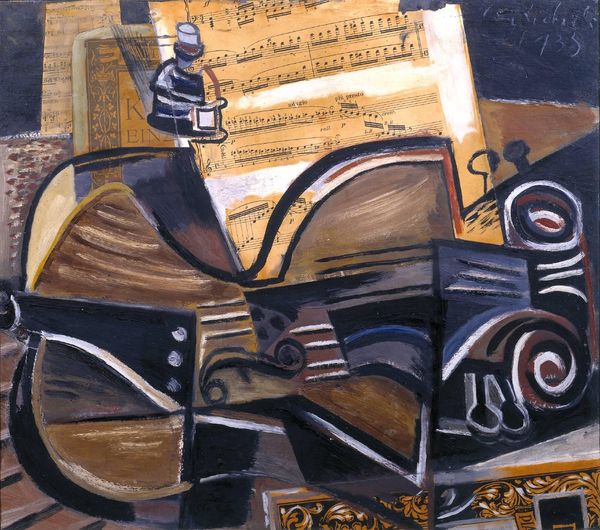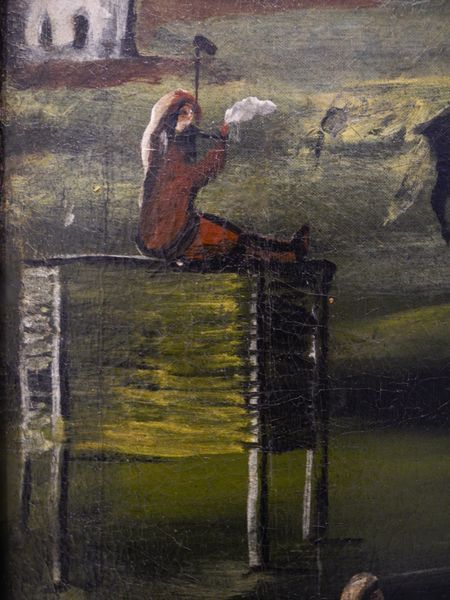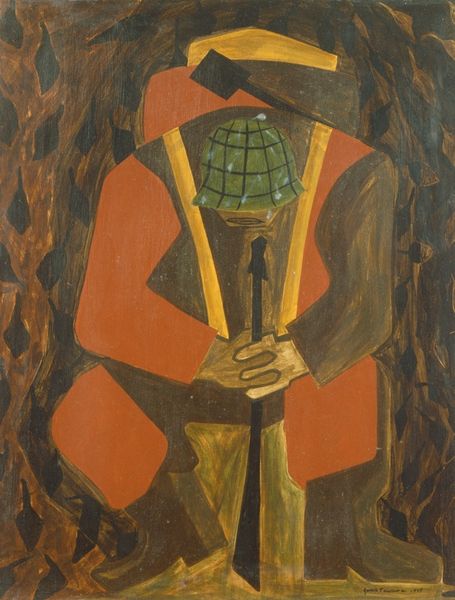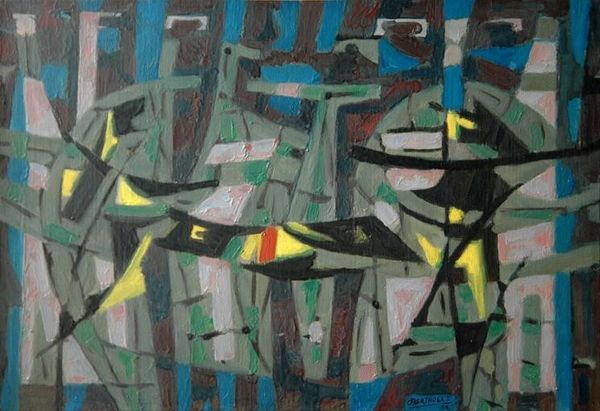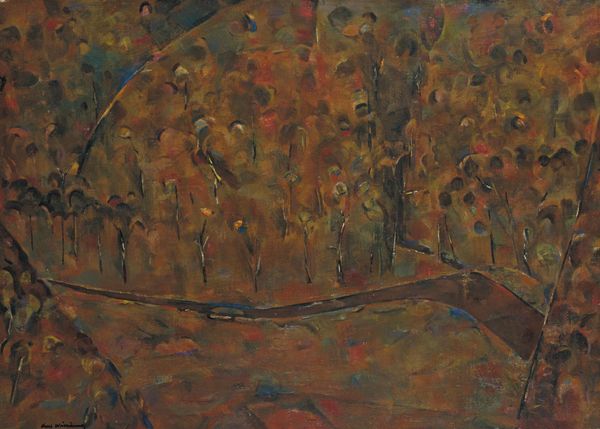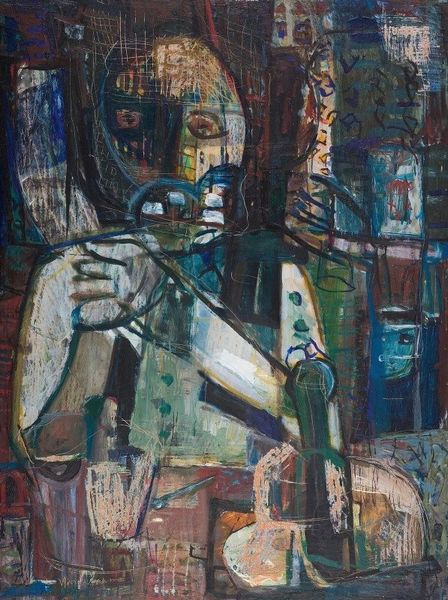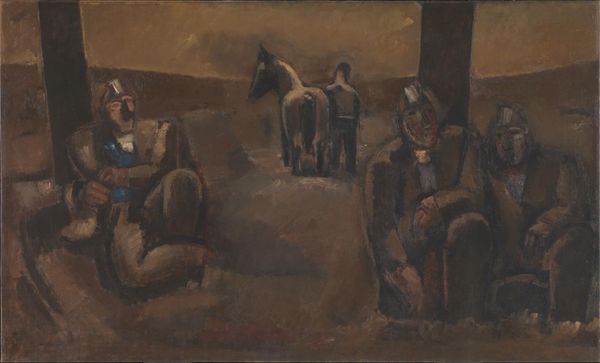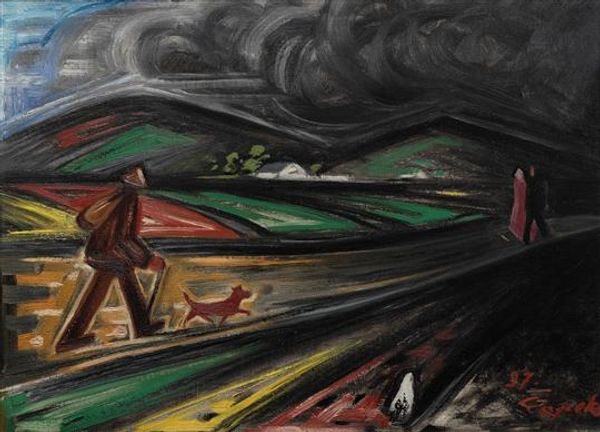
Copyright: Public domain
Editor: Here we have Josef Capek's "Standing Fisherman," painted in 1937, using oil on canvas. The scene is somewhat muted, almost claustrophobic with its tightly framed composition. What strikes you most about this piece? Curator: Considering Capek's historical context, specifically the looming threat of war in 1937, I see the materiality of the oil paint itself, thickly applied in short, nervous strokes, as reflecting a society under pressure. Fishing, ostensibly a leisure activity, becomes laden with the weight of the times. The very act of applying the paint reveals the artist's anxieties. Editor: That's a really interesting way to look at it. I was focusing more on the figures, and the somewhat bleak palette, but you're right, there's a palpable tension in the brushwork. Does the figure's checkered pattern suggest a commodification even of leisure? Curator: Precisely! Think of the ready-made nature of clothing during this period, even outdoor attire. This ‘uniform’ of leisure hints at a social standardization, potentially masking individual concerns under a veneer of normalcy even as war encroached. It makes you consider who has access to this manufactured "nature". Editor: I see what you mean! So it's not just the fishing, but everything surrounding the scene being influenced by this tension. I'm left thinking about access, labor, and a deeper unease within something seemingly simple. Curator: Indeed, looking at art through the lens of materials and production methods brings to light narratives beyond the immediately visible subject. It compels us to ask "who benefits" from art, who has access to artistic activities, and how material things participate in historical narratives. Editor: This conversation made me consider art interpretation as an active dialogue with socio-economic reality rather than a mere analysis of symbols. Thank you. Curator: And likewise, it's refreshing to consider artworks not only for their visual and tactile properties but how those are deeply shaped by production means.
Comments
No comments
Be the first to comment and join the conversation on the ultimate creative platform.
